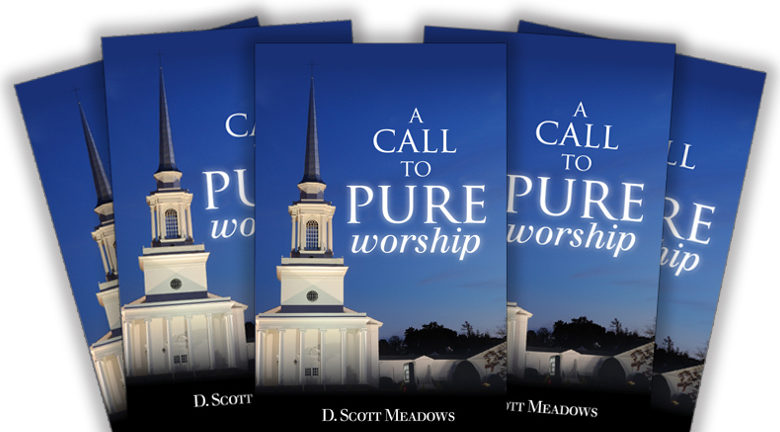In teaching on the doctrine of regeneration recently, I was thinking through explanations on why people would reject the Bible’s teaching on this precious doctrine. I came up with 5 reasons. These reasons apply to other precious doctrines as well.
When the Bible teaches something on any given subject, here are 5 reasons one might reject that teaching.
Rebellion
Now, here, of course, is probably the worst problem of all the 5 reasons I’m going to give you.
The Psalmist says in Psalm 119:155, “Salvation is far from the wicked, for they do not seek your statutes.”
To look at the Bible’s teaching and to respond with an out-and-out “No!” does not bode well for one’s status with the Lord. To rebel against God’s Word is to rebel against God Himself. One characteristic of a Christian is that we love God’s Word.
Ignorance
When we become Christians we don’t have a full-orbed robust understanding of every Christian doctrine. This is why what Jesus says in the Great Commission matters. We are to teach disciples because one doesn’t come into the Christian faith knowing everything.
It’s one thing to know what the scriptures teach and to rebel against them. But it’s quite another to not know what they teach on a particular subject. Ignorance, however, isn’t a forever excuse. And that leads me to my third point on why someone might not believe the Scriptures’ teaching on a certain doctrine:
Laziness
The author of Hebrews says in Hebrews 5:12-14, “For though by this time you ought to be teachers, you need someone to teach you again the basic principles of the oracles of God. You need milk, not solid food, for everyone who lives on milk is unskilled in the word of righteousness, since he is a child. But solid food is for the mature, for those who have their powers of discernment trained by constant practice to distinguish good from evil.”
Now, Jesus says in Matthew 18:3, “Truly, I say to you, unless you turn and become like children, you will never enter the kingdom of heaven.”
But He doesn’t mean by that that we are to be childish or to remain as children in the faith. A baby grows from milk to baby food, to solid food, to steak. So too, must believers grow in their faith and their understanding of sound doctrine.
Thus, to a new believer or a young believer, we can say ignorance is okay to a certain extent… Just like you don’t expect a 3-year-old to understand math like a 9-year-old. And we might also even say that some true Christians have a lack of knowledge of sound doctrine that might be attributed to having sat under poor teachers.
But, there is this factor too that I’m bringing out now and that is laziness. And laziness is not okay. Some professing Christians are lazy when it comes to sound doctrine. They don’t want to study. They don’t want to search the scriptures. And perhaps they are even satisfied with where they are in their knowledge.
I remember being like that once. I was probably about 21 and I thought “Sure, there are some things I don’t know, but I pretty much know the main stuff so I’m good.” I wish I could go back and slap that 21-year-old version of myself. A lot of professing Christians get like this. And to exacerbate this issue, consider what access we have to the Bible today! I mean, the last 20 years of Christianity in America has been amazing in regards to the access we have to the Bible and resources online.
We have the Bible on our phones. When we are in line or waiting on the doctor or out for a walk, we can read or listen to our Bibles. I actually have a ton of resources just on my phone and there are tons of free resources online, sermons, commentaries, notes. It is amazing the access we have to learn sound doctrine in American in the last 20 years. Take advantage of that!
David says of God’s Word in Psalm 19:10, “More to be desired are they than gold, even much fine gold; sweeter also than honey and drippings of the honeycomb.” Studying the Scriptures to understand the truth about doctrine isn’t just for theologians or pastors. But for all of us who find God’s Word more precious than gold and sweeter than honey.
Trust in Human Philosophy
I see this a lot. That is, you start with a philosophical position, and then when you go to the scriptures they don’t line up with your position and so you don’t trust the scriptures because of your philosophical position. So, you start with a philosophical concept about libertarian free will, or God, or sin or whatever, and then you read the Bible through that lens. Of course, we all read the Bible with presuppositions. But the goal is to have the scriptures shape our presuppositions rather than our presuppositions deny the plain reading of the scriptures.
So, if you say, “Well, people can’t really be dead in their trespasses and sins because then God would be unfair.” That is going to shape how you interpret the scriptures. And you will dismiss a lot of the plain teaching of the Bible simply because of your commitment to human wisdom or philosophy.
The starting point for understanding sound doctrine is not man but God. Thus, we start with the scriptures and we submit to them, rather than trying to make the scriptures submit to us.
I have talked to people who I do think are genuine believers that just can’t get over this hump. But what we have to do is just continue to be patient and keep teaching and keep depending on the Word. The Word of God is powerful. It’s more powerful than we give it credit for. And so we keep teaching it and studying it and trusting that it will cause trust in human wisdom and philosophy to crumble.
Tradition
I understand some of these reasons do overlap at times. But what I mean by tradition is one being so committed to a certain framework that he or she will not see the Bible’s truth.
I think of personal heroes of mine who I think are wrong on certain things. I think of R.C. Sproul and his commitment to infant baptism. I think of John MacArthur and his commitment to dispensationalism. It’s not ignorance, laziness, rebellion, or human philosophy that led them here. I would make an argument that it is their respective traditions.
So, what we need to be careful here with (all of us!) is not allowing our traditions to define the Bible’s teaching, but allowing the scriptures to formulate our traditions. Traditions are not bad, but they must be shaped by scripture.
And I might add here that to be “anti-tradition” is a tradition (and a bad one).
The Bible is our source for all sound doctrine. Everything we believe must be held up to the scrutiny of God’s Word. Everything we believe must flow from this Book for it is truth.





Robert, thank you very much for the kind words, brother. That sincerely means a lot to me that your spirit…